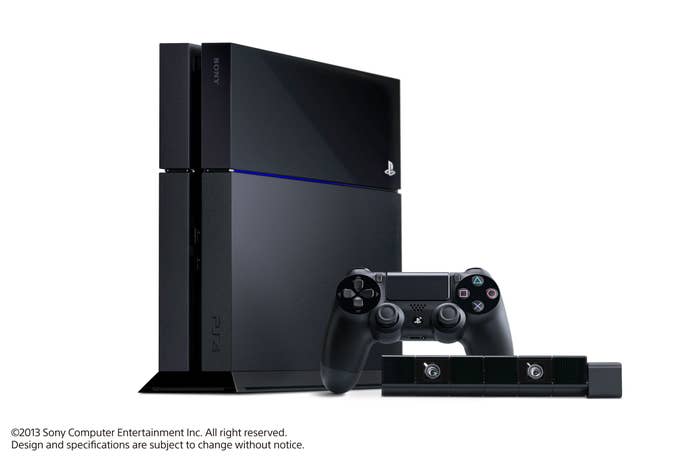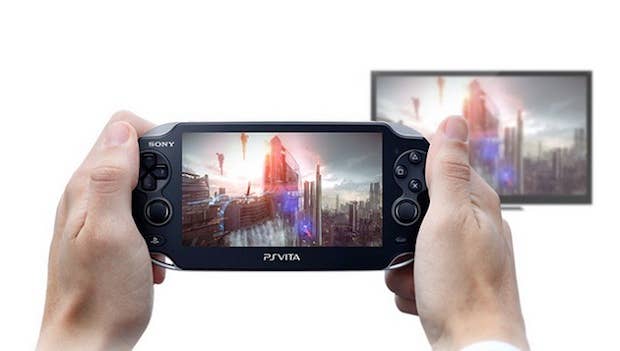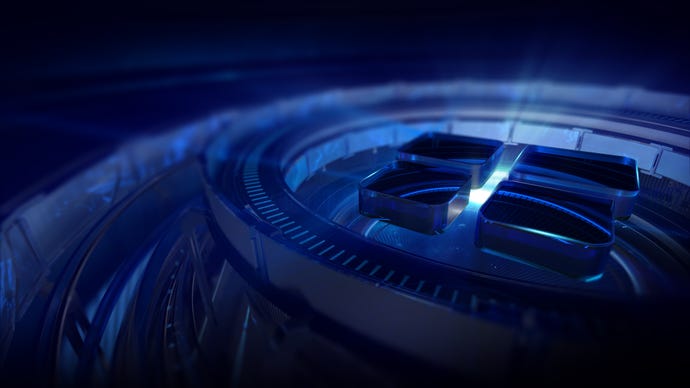What Happened to Gaikai?
Sony hasn't forgotten about Gaikai, the streaming service it's been planning to implement in PS4 and beyond.
This article first appeared on USgamer, a partner publication of VG247. Some content, such as this article, has been migrated to VG247 for posterity after USgamer's closure - but it has not been edited or further vetted by the VG247 team.
Backwards compatibility seemed to be quite important at the start of the previous console generation, but support gradually tailed off as the years went by.
Now, with the new generation of consoles, neither Xbox One nor PlayStation 4 have any sort of backwards compatibility whatsoever -- the only eighth-generation console to support backwards compatibility is Nintendo's much-maligned Wii U, which features a Wii Mode for playing previous-generation games.
Microsoft's plans regarding backwards compatibility -- if indeed it has any -- are shrouded in mystery at present, but we've known for a while that Sony was planning to make use of Gaikai's streaming technology to allow PlayStation 4 players access to the substantial back catalog of PlayStation 1, 2 and 3 titles -- not true backwards compatibility, but a potentially good means of faking it.
What we haven't heard is when we might be able to expect that functionality to appear on the new console -- until now, that is.

Speaking with our sister site Eurogamer, president and group CEO of Sony Computer Entertainment Andrew House noted that Gaikai would be launching in the US first "within 2014" -- trusted sources were a little more specific, telling Eurogamer that beta testing would begin in "early 2014," and that the full service would be up and running by the third quarter of 2014. Europe, meanwhile, would be waiting until 2015.
"Our goal is to be able to have a new form of game distribution streamed from the server side, initially to PS4 consoles then gradually moving that out to Vita," House said. "But eventually, the endgame is to have this available on a multitude of network-connected devices, essentially delivering a console-quality gaming experience on devices which are not innately capable of doing that.
"We think there's a great opportunity to broaden the market, because you essentially remove the need to make the console purchase in order to have access to that experience. It may sound counter-intuitive, because, aren't you replacing a business that is your bread and butter? But part of being an innovative company is being a pioneer in new forms of distribution of content, and we would like to be there first and take a leadership role."
However, there are still a lot of question marks over Gaikai and its implementation across Sony platforms and networks -- and indeed whether it is a practical solution at all in the first place. Despite what House says, Sony is not a pioneer in streaming distribution of game content; OnLive has been doing it since 2010 and is still up and running today, despite a number of bumps in the road along the way. OnLive, however, failed to resonate with its audience and is rarely even mentioned today, at least partly because it was somewhat ahead of its time -- particularly with regard to the infrastructure required to support it.
In an analysis of OnLive once it was available for all to use, Digital Foundry found the experience of streaming games to be a somewhat inconsistent one, with some games looking better than others when subject to video compression -- Unreal Tournament 3 suffered particularly badly, for example -- and some being subject to an unacceptable degree of lag that made games borderline unplayable. When it worked, it worked well, and it's a sound concept; however, Internet connections around the world have to date been too inconsistent and variable to make such a service a true competitor to dedicated games hardware. That may change in the near future with the growth of technology such as fiber-optic broadband, but whether or not the infrastructure will be in place in time for Sony's proposed launch of Gaikai next year remains to be seen.
OnLive isn't the only streaming service to have had variable results, either; the PlayStation 4's much-vaunted Remote Play functionality in conjunction with Vita has been reported by many people to be of rather poor quality -- both visually and in terms of latency -- when used via the Internet, while those who set up a direct network connection between their Vita and PlayStation 4 have had significantly better results when attempting to play Resogun in bed. It's the former option that's important here, however, since streaming gameplay video over the Internet to a remote device is exactly what Gaikai is doing (indeed, in Digital Foundry's recent analysis of Vita Remote Play, Gamer Network's resident techno-whiz Richard Leadbetter noted that Remote Play is based on Gaikai tech) and there's still a lot of work to be done, it seems.

There's another consideration to bear in mind, too: who Gaikai benefits. Different people regard their game collections in different ways: some people prefer rentals as a means of trying before you buy; some are happy to pay a subscription fee for a service such as PlayStation Plus to get regular "free" games that they'll lose access to if they cancel their subscription; others buy a game, play it, then trade it; others still buy games then keep them in a collection to be enjoyed for as long as they have something to play them on. Gaikai does not uniformly benefit all these groups because there's no real way it can -- at best, it presents a similar situation to PlayStation Plus, although PlayStation Plus is not reliant on an Internet connection to keep gameplay running once you've downloaded your "free" games each month.
Gaikai potentially offers the opportunity for gamers to catch up with previous-generation games they may have missed, then, but whether or not it will take the place of dedicated, local gaming hardware is somewhat in doubt at present -- particularly for those who enjoy having a shelf full of games they own that aren't reliant on having a stable and consistently high-speed Internet connection.
In other words, don't toss those old consoles and games out just yet.
